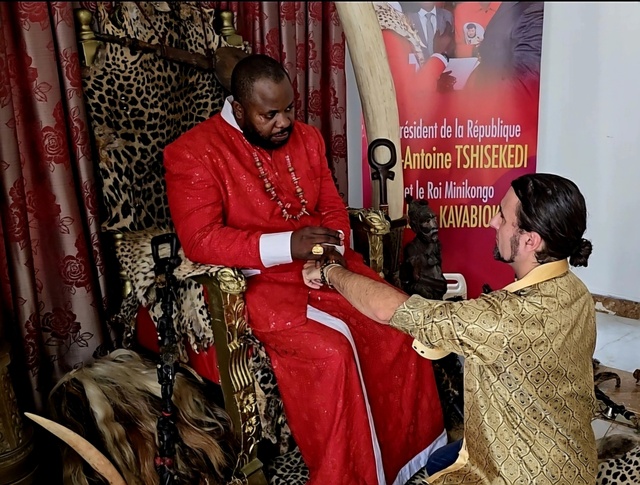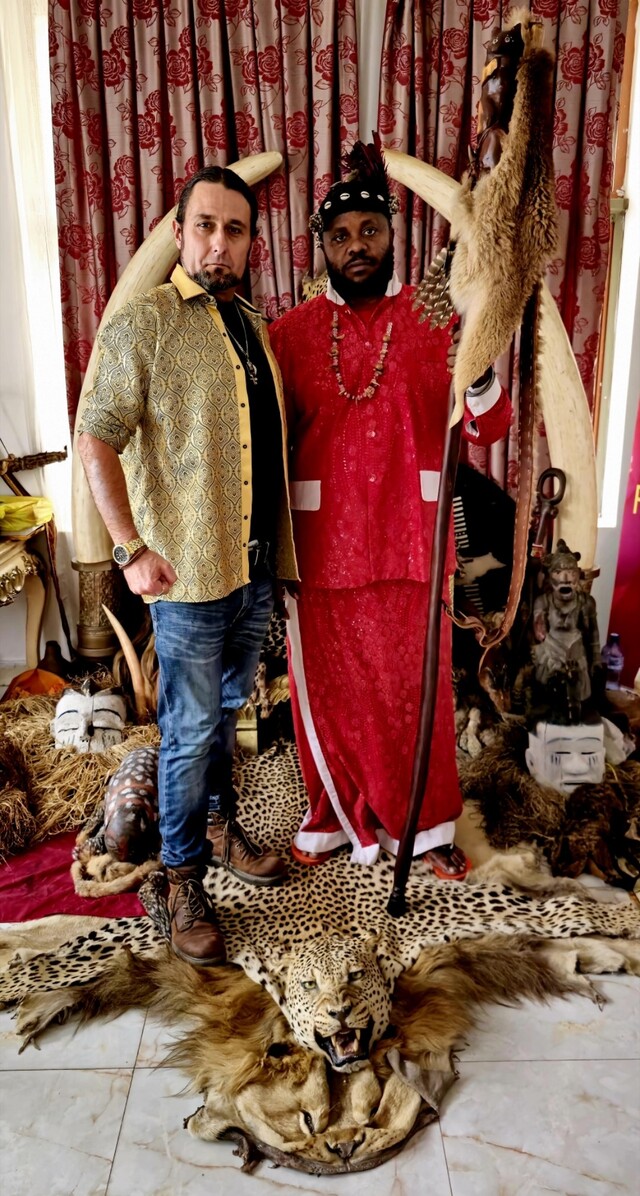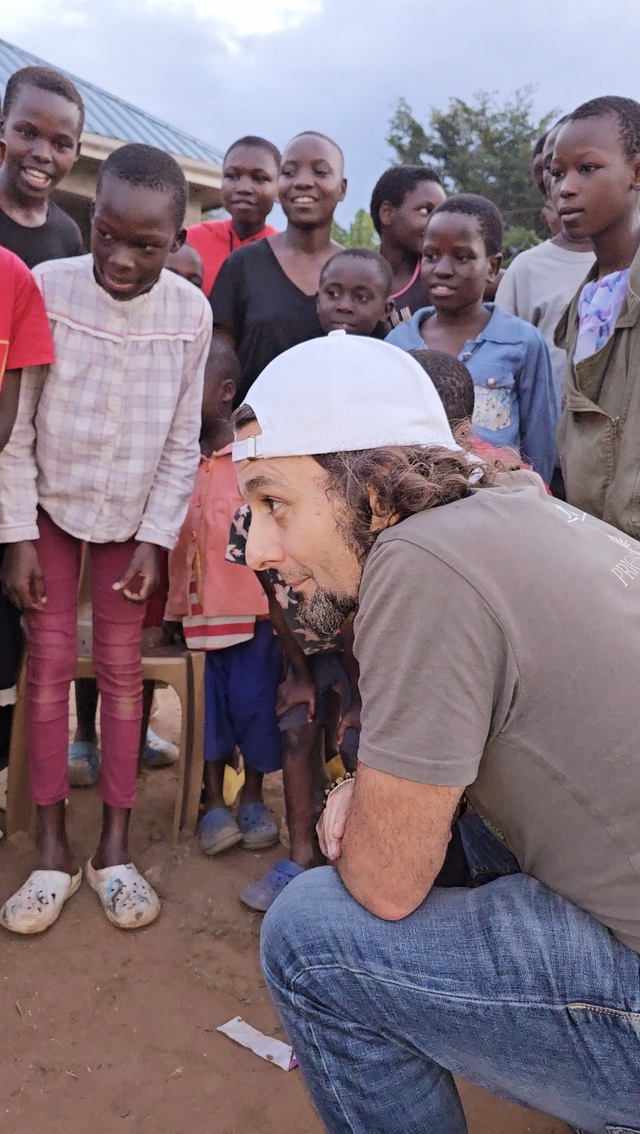In Africa, or more precisely, the Democratic Republic of Congo (DRC) a miner can pull a $10 million-dollar rough diamond out of the ground and be lucky if he gets two or three dollars for it.
The times, however, are changing and the story of how a Noosa businessman is reshaping and promoting the ethical sourcing of raw diamonds in countries like DRC, Uganda and Kenya to get a better trade deal for miners and their families on world commodity markets is a fascinating one.
The businessman, Eliahi Priest (43) is director of Priest Jewellers at Noosa Civic and his interest in the plight of the miners starts way back in 2008 when Eliahi was working in the UK as director of the Institute of Security and Co-operation in Outer Space.
“I was invited to a United Nations World Peace Congress in Kuala Lumpur and I heard a Congolese speaker sharing his wish to help his people and the need to bring solutions and infrastructure to all the things his country needs, particularly for the children.
“When I saw him the next day, he was looking very dazed and lost. His briefcase had been stolen at the airport so I helped get another passport and some money.
“We became very close friends and he would call me regularly and ask, ‘when are you coming to help my people.”’ During that period of my life, I had my own problems. I was struggling to help my family and I wasn’t too sure about being able to assist. This was also about the time when I stepped back into the jewellery store with mum and dad.
“One time, when I was coming back from a jewellery conference, I saw on the front page of a magazine that a company was starting to investigate putting diamonds on a blockchain or digital ledger by which the provenance of diamonds could be proven from the mine all the way to the market.”
He said the problem with African countries was that while they were among the richest in resources in the world they were also among the poorest. There was an abundance of supply of resources but the issue was the terms of trade by which these resources were delivered.
“There is bribery going on and there is corruption so the supply chain gets milked between the miners and the market. It gets the highest price with the miners getting the lowest price.”
Eliahi thought he could do something to help “as I had access into Africa and so in 2017 I set about how to get the necessary funding to establish the supply chain for not only diamonds but all commodities.
“I set up another company, the Priest Group to manage these types of negotiations and find solutions. With the help of contacts from the institute I’ve managed to position myself between the technology providers of the blockchain, the surveilance and the security around the supply chains.
“Through one of my technology groups, we are calling the programme GEOGenesis. We have access to satellites where we do remote sensing and we scan an area of land for natural resources.
“Now the satellite isn’t wholly accurate but it tells us where to send our ground teams so we can mine in that location for particular materials whether it be iron, cobalt, copper, gold, water, oil, diamonds or gas.
“What has the governments interested is that our technology can produce readings to a depth of six kilometres and an accuracy of six inches with which we can literally create a subterranean treasure map under the earth. It is phenomenal.”
He said the Priest Group in Kenya was registered in Nairobi. Everything was done by contract, showing the work that needed to be done and what the equity share was.
Asked how much of this was philanthropic, he said a huge portion, “Of course, we have to make money but the end goal isn’t money. It is the means to make a social impact. This is something that needs to be done.
“I want to be able to look at a blockchain screen and know where our precious stones and metals are coming from. I want to look at how much the miner got paid, what profits are given back into the community and who was involved in the supply chain.
“Once it is on the ledger no third party can interfere with it because it is encrypted. It means we can take the corruption out of the supply chain.”
He said: “It is an extremely risky process upsetting the status quo over there. People are making a lot of money and whenever you enter an arena where you attempt to disrupt a stranglehold of power on a particular monopoly you make enemies because they are quite comfortable in what they are doing.
“It’s not like a great ambition of ours to enrich ourselves. It is first and foremost a human impact project.”
Eliahi came back to Noosa earlier this month from a 12-day mission to South Africa, the DRC, Uganda, and Kenya to secure diplomatic ties. He visited the DRC capital, Kinshasa, where he was received at the palace of His Majesty King Fabrice Zombi, leader of the 19 million strong Suku tribe.
Eliahi said, “He is the most respected traditional leader of the Congolese. As a result, he has an enormous influence.
“My first contact with the King was in 2019. I was enjoying a coffee at the Junction when out of the blue I got a phone call from him. He had heard about what I was doing, and I was recommended to him. He had seen an online presentation of mine realised I was prepared to stand up to powerful interests, let’s put it that way.
“I presented him with a beautifully handcrafted staff by local artisan Matty George as a symbol of respect and cultural exchange from Noosa’s local Kabi nation, as represented by a local native title holder Witboooka Kabi.
“It symbolised a first of kind connection between the indigenous people of Australia and the tribal nation of Suku, Congo. The King was deeply moved by this token and said it signified a strong bond and mutual respect between the two nations.”










